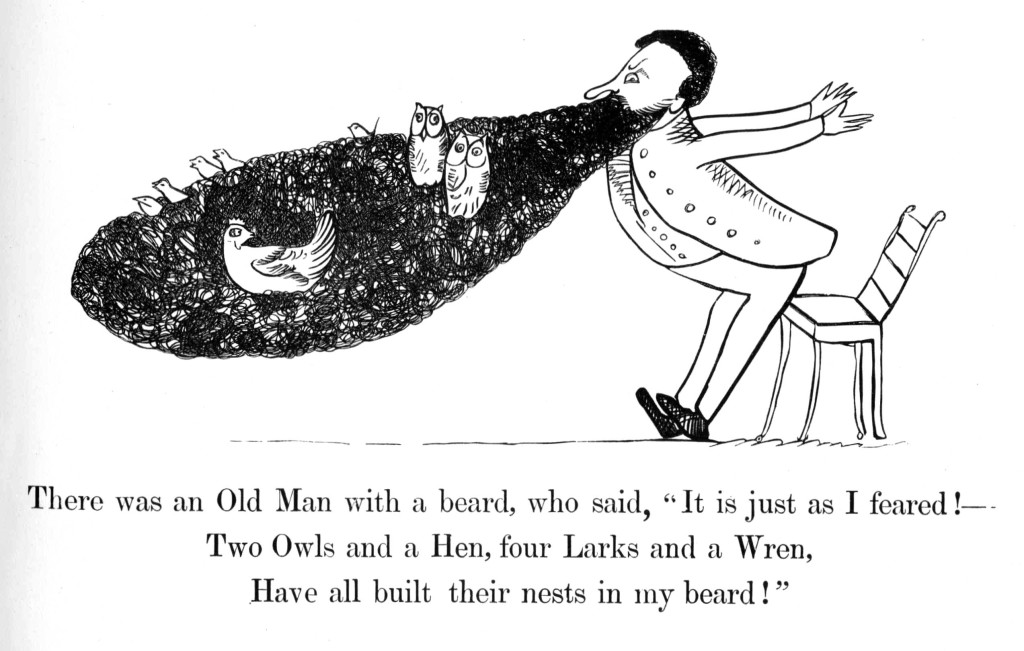Rhythmic Play for Limerick Day
By Muthukumar Elangovan.
A limerick is short, funny, and often rude poetry that usually consists of five lines with a strict rhyme scheme of AABBA. The first, second, and fifth lines must rhyme with each other, while the third and fourth are often shorter and share their own separate rhyme. The etymology of limerick poetry is not known, but it is generally attributed to the city of Limerick in Ireland. Edward Lear popularized limericks after the publication of the Book of Nonsense in 1846. The following is a limerick from said book:
There was an old Man with a beard,
Who said, “It is just as I feared!
Two owls and a Hen,
Four Larks and a Wren,
Have all built their nests in my beard!”
The very last line of the limerick is the most important and should pack a punch. Writing those last lines with punches is tough. Here is an example from an unknown author who wrote a limerick about the difficulty of finishing limericks:
There was a young man from Japan
Whose limericks never would scan.
And when they asked why,
He said “I do try!
But when I get to the last line, I try to fit in as many words as I can.”
The last line of a limerick is as important as icing on the cake or “the gin in Campari” (if I may borrow from the late Christopher Hitchens). Below is a limerick that I have tried, which might be appreciated by wine lovers:
Some drink to drown their sorrow,
Others like there’s no morrow.
Oh, honey! You knew, too,
Why I did “that” with you.
You’re of age and from Bordeaux!
Why can limericks not be more serious and even philosophical? I have tried a more philosophical one with a sufficient punch at the end:
No fairness! Even in birth!
Death is the fairest on Earth.
Good, bad, and sinner,
One and all a winner,
As our ashes are equal in worth.
Here is another one that unpacks the “origin of everything.” Science students and aficionados might appreciate this and might have improvements of their own:
It all started with a Big Bang,
Out of which life also sprang.
On Earth, we lay
In the Milky Way,
But round the Sun we swang!
My aim in sharing these examples is that limericks can be funny and usually are, but they can also be about science and even philosophy. In today’s modern world where news, gossip, and boasting come in short verses typically in 140 characters or less, why not consider the relevance of limerick poetry?
As Khalil Gibran remarked, “Poetry is a deal of joy and pain and wonder, with a dash of the dictionary.” The appreciation of poetry can begin with limericks. Though other forms of poetry are often tedious for beginners to understand, this does not mean that they should be ignored. In fact, any form of writing with good prose must be appreciated. Such is the distinct quality humans possess to appreciate language as an art form that stirs the passion, moves the spirit, and lifts us beyond mere mammals. So, let us start writing our own limericks now, just in time for the 12th of May – which is Edward Lear’s birthday, as well as Limerick Day.
The Author
Muthukumar Elangovan is a molecular biologist at the Gwangju Insitute of Science and Technology (GIST). He’s a naturalist, loves reading non-fiction books, and writes poetry, short stories, and other topics in his blog.
E-mail: pentomuthu@gmail.com




